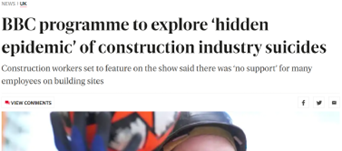“1 in 4 people will experience a mental health problem of some kind each year in England.”
(Mind, 2024).
Our mind health is just as essential to support and maintain as our physical health. If we had pain in our arm which impacted on our day-to-day life, we would take steps to manage the pain and limit the impact it has on our life. So, if our thoughts and emotions are feeling heavy and difficult to manage – impacting on our day-to-day life - we need to feel empowered to do the same to support our mind.



Next Course: June 6th, 2025
The Centre for Mental Health estimated the economic cost of mental ill health in England in 2022 to be £110billion. This does not take into account the human cost; the impact on the quality of life of those living with mental health challenges. The stigma associated with mental health is thankfully changing but as a society we still have a long way to go to ensure everyone feels able to express their struggles and seek support when needed. Post-pandemic impacts on mental health are still being realised as well as the very present and very real concern of the cost-of-living crisis.
Many people, including employers, appreciate the impact of mental ill health and the benefits of supporting mental health to create a positive and productive working environment. However, mind health is not just about supporting those with diagnosed mental health conditions. It is vital that we consider how to support everyone to live well – now and in the future. Taking a whole person approach to mind health is essential, this could include:
Recognising what helps and hinders our mind health
Managing and expressing difficult emotions – including stress
Exploring lifestyle factors – including diet, exercise and sleep
Establishing habits and routines that support mental health and wellbeing
Mind health can be likened to a mobile phone battery. Many of us embed the act of keeping our phone charged into our day-to-day life – we wouldn’t dream of letting it run too low! Our mind functions like a battery – to keep our battery optimised we need to learn what drains our battery and what helps to fill it back up again.

Book in a free meeting with our wellbeing lead who can visit you and your team in person or via M...

This page aims to provide you with some clarity and options to support you in making that step. ...

Those working in construction are nearly four times more likely to take their own life when compa...